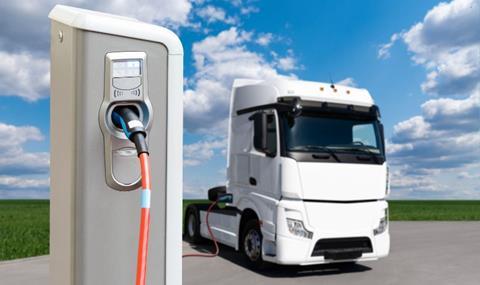
Greater investment in green fuels and infrastructure, including hydrogen and electric HGVs, is required to stave off an unstable freight future that threatens to destabilise our economy, according to digital freight management firm Zeus.
The logistics tech start-up was responding to a report by the International Energy Agency (IEA), which said we were in the midst of a global crisis and that the world had not invested enough in energy in recent years, leaving energy systems vulnerable to the shocks seen this year, including Russia’s invasion of Ukraine.
Zeus said the UK road haulage sector was more vulnerable to energy prices because 70% were smaller owner operators with fewer than 12 HGVs, but it stood to benefit in both the short and long term if the government put energy reform at the centre of the UK’s economic agenda.
“The UK road freight industry – the vast majority of which is made up of owner-operator and small haulage firms - continues to seek stability from the record fuel prices and continued inflation,” said Jai Kanwar, Zeus joint MD.
“I hope this new cabinet means that we now have a chance for a fresh start. A pivotal focus needs to be the creation of strategic, longer-term policies that help protect the UK supply chain ecosystem and, crucially, keep the flow of goods and produce on the move.
“One aspect of which is a need for greater investment in sustainable freight fuels and infrastructure, such as hydrogen and electric heavy goods vehicles, as much of this current crisis can be traced to our dependence on imported fuels.
“Without this, our freight future remains unstable and the very backbone of our consumer economy is at risk.”
Kanwar said new transport secretary Mark Harper’s attention must now focus on progressing the £450m local EV infrastructure fund from the office for zero emission vehicles: “This investment is crucial if we are to wean the transport sector off fossil fuels and embrace a fully sustainable and British-centric supply chain that helps ensure growth can proceed smoothly,” he said.
Philip Fjeld, chief executive at CNG Fuels, said fleet operators also needed to take action now if the 2050 global net zero goal was to be reached: “We cannot sit back and wait for electrification to become a commercially viable solution for heavy goods transport. Making dramatic emissions cuts is entirely possible today.
“The IEA’s world energy outlook report made clear that biofuels will be central to the world’s net zero transition, and renewable biomethane is a solution that is available to HGV fleet operators now.
“CNG Fuels’ infrastructure is in place today for fleets to make emissions cuts of over 90%, whilst saving up to 40% on lifetime fuel costs.
“We don’t have time to waste,” he added.













